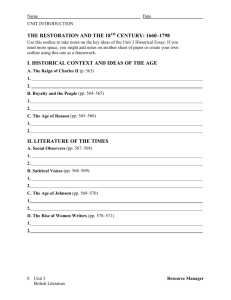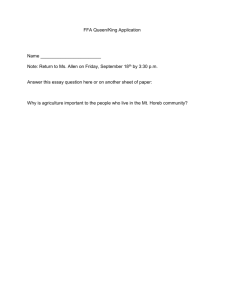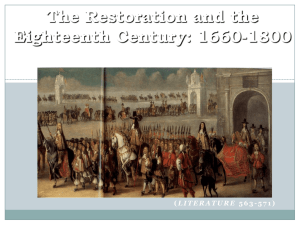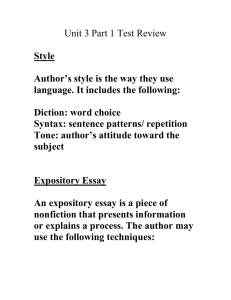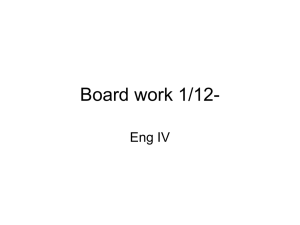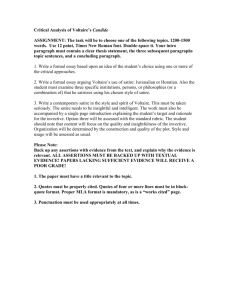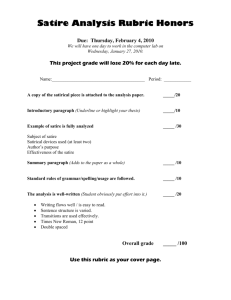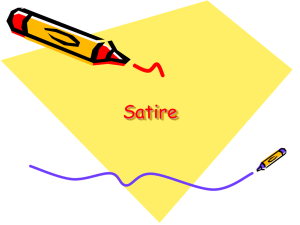Restoration and Age of Reason Notes Questions
advertisement
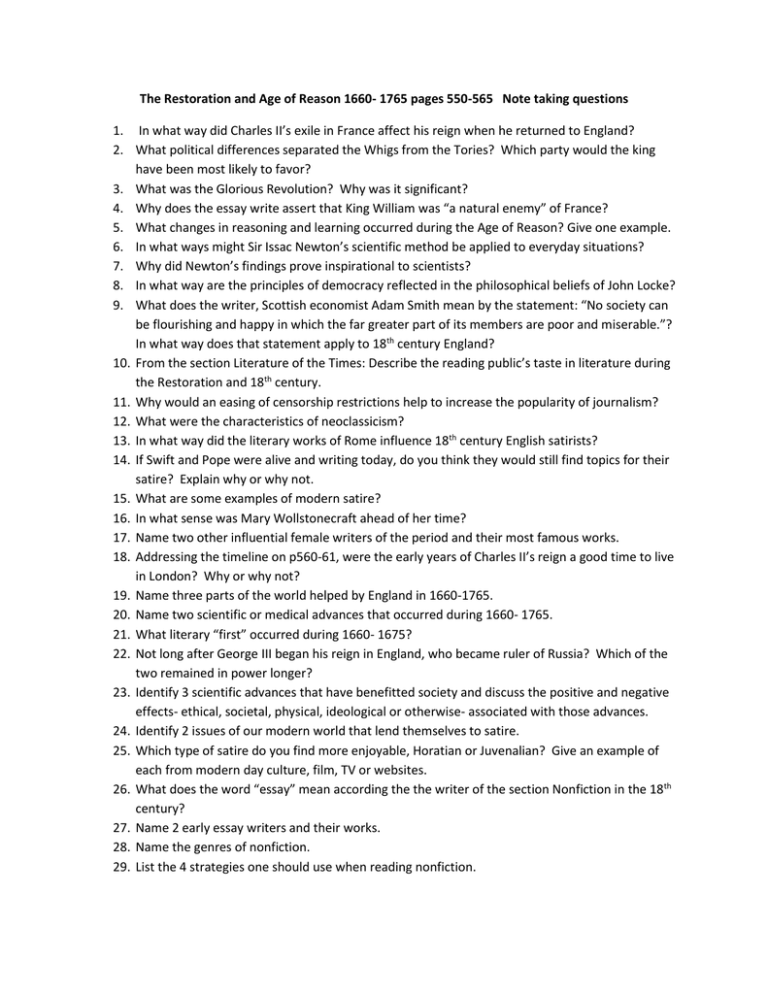
The Restoration and Age of Reason 1660- 1765 pages 550-565 Note taking questions 1. In what way did Charles II’s exile in France affect his reign when he returned to England? 2. What political differences separated the Whigs from the Tories? Which party would the king have been most likely to favor? 3. What was the Glorious Revolution? Why was it significant? 4. Why does the essay write assert that King William was “a natural enemy” of France? 5. What changes in reasoning and learning occurred during the Age of Reason? Give one example. 6. In what ways might Sir Issac Newton’s scientific method be applied to everyday situations? 7. Why did Newton’s findings prove inspirational to scientists? 8. In what way are the principles of democracy reflected in the philosophical beliefs of John Locke? 9. What does the writer, Scottish economist Adam Smith mean by the statement: “No society can be flourishing and happy in which the far greater part of its members are poor and miserable.”? In what way does that statement apply to 18th century England? 10. From the section Literature of the Times: Describe the reading public’s taste in literature during the Restoration and 18th century. 11. Why would an easing of censorship restrictions help to increase the popularity of journalism? 12. What were the characteristics of neoclassicism? 13. In what way did the literary works of Rome influence 18th century English satirists? 14. If Swift and Pope were alive and writing today, do you think they would still find topics for their satire? Explain why or why not. 15. What are some examples of modern satire? 16. In what sense was Mary Wollstonecraft ahead of her time? 17. Name two other influential female writers of the period and their most famous works. 18. Addressing the timeline on p560-61, were the early years of Charles II’s reign a good time to live in London? Why or why not? 19. Name three parts of the world helped by England in 1660-1765. 20. Name two scientific or medical advances that occurred during 1660- 1765. 21. What literary “first” occurred during 1660- 1675? 22. Not long after George III began his reign in England, who became ruler of Russia? Which of the two remained in power longer? 23. Identify 3 scientific advances that have benefitted society and discuss the positive and negative effects- ethical, societal, physical, ideological or otherwise- associated with those advances. 24. Identify 2 issues of our modern world that lend themselves to satire. 25. Which type of satire do you find more enjoyable, Horatian or Juvenalian? Give an example of each from modern day culture, film, TV or websites. 26. What does the word “essay” mean according the the writer of the section Nonfiction in the 18th century? 27. Name 2 early essay writers and their works. 28. Name the genres of nonfiction. 29. List the 4 strategies one should use when reading nonfiction.
